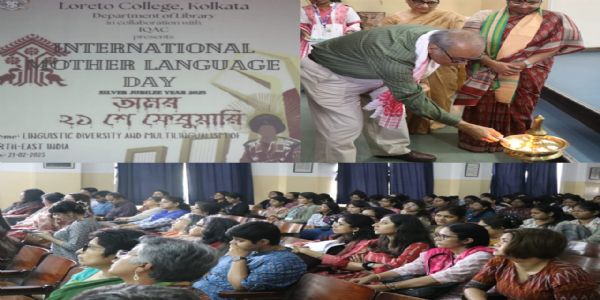
Tamil Nadu, 19 February (H.S.)
In a creative and peaceful protest, residents of Tamil Nadu took to the streets to express their opposition to the central government's alleged imposition of Hindi. The protesters used Rangoli, a traditional Indian art form, to convey their message.
The protest, which took place in various parts of the state, including Chennai, Madurai, and Coimbatore, saw participants create intricate designs and patterns using colored powder. The Rangoli designs bore messages such as English is enough for us and Tamil Nadu against Hindi imposition.
The protesters argued that the central government's push for Hindi would undermine the linguistic and cultural diversity of India. They demanded that the government respect the rights of non-Hindi speaking states and refrain from imposing Hindi on them.
The protest was organized by various Tamil nationalist groups and received widespread support from the public. The protesters claimed that the central government's actions were an attack on the federal structure of India and the rights of non-Hindi speaking states.
The issue of language has long been a sensitive topic in Tamil Nadu, with many residents fiercely proud of their linguistic and cultural heritage. The state has a long history of resisting attempts to impose Hindi on it, dating back to the 1960s.
The central government has denied allegations of Hindi imposition, stating that it is committed to promoting all Indian languages. However, the protesters argue that the government's actions belie its claims.
The Rangoli protest is the latest in a series of demonstrations and rallies that have taken place in Tamil Nadu in recent weeks. The protests have been peaceful, but the underlying sentiment is one of strong opposition to what is seen as an attempt to erode the state's linguistic and cultural identity.
---------------
Hindusthan Samachar / Dr. R. B. Chaudhary






